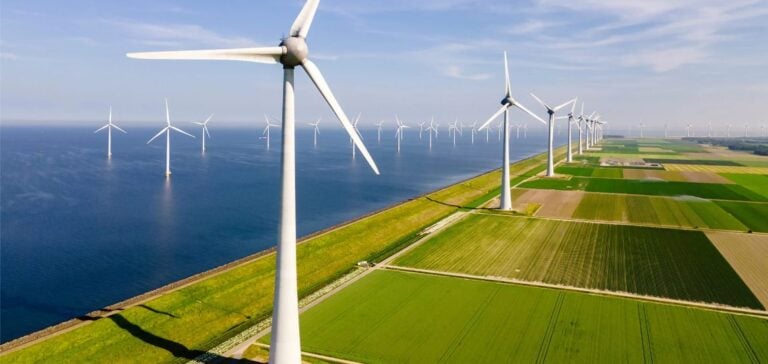In 2024, the United Kingdom solidified its position in the energy transition, achieving a record level of 58% of its electricity produced from low-carbon sources, according to an analysis by Carbon Brief, a media outlet specializing in energy issues. This milestone highlights a significant reduction in reliance on fossil fuels, which now account for 29% of electricity production, the lowest level ever recorded.
End of coal and new energy policy
The United Kingdom definitively ended its use of coal in electricity production in September 2024 with the closure of its last coal-fired power plant, a first among G7 members. Additionally, the government banned any new coal mining projects in November of the same year. These measures are part of a political framework aimed at drastically reducing greenhouse gas emissions and achieving carbon neutrality by 2050.
Labour Prime Minister Keir Starmer, who came to power in July 2024, has made climate a central pillar of his policy. In November, at COP29 in Baku, he announced a target of reducing greenhouse gas emissions by at least 81% by 2035 compared to 1990 levels. This ambitious strategy reflects the UK’s desire to position itself as a key player in global energy diplomacy.
Renewable energy expansion
The development of renewable energy is one of the main drivers of the UK’s transition. In 2024, renewable energy accounted for 45% of total electricity production, driven by significant growth in wind energy (26%) and biomass (13%). Solar energy remains marginal, contributing 4%, while nuclear energy provides a stable 13% share of the low-carbon energy mix.
Wind power capacity in the country is expected to grow further in 2025, according to Carbon Brief, with projections suggesting that wind energy could surpass natural gas (currently at 28%) to become the main source of electricity.
Economic and diplomatic impacts
The UK’s energy transition creates opportunities for both domestic and international economic players. The expansion of renewable energy is accompanied by substantial investments in infrastructure, particularly in offshore wind. These projects enhance the UK’s appeal to investors while bolstering its energy independence.
On the diplomatic stage, these advancements allow the United Kingdom to exert greater influence in international climate negotiations. With restrictive legislation and clear goals, the country is positioning itself as a model of energy policy in Europe, although it still lags behind nations like Norway and Sweden, where renewable energy dominates.






















